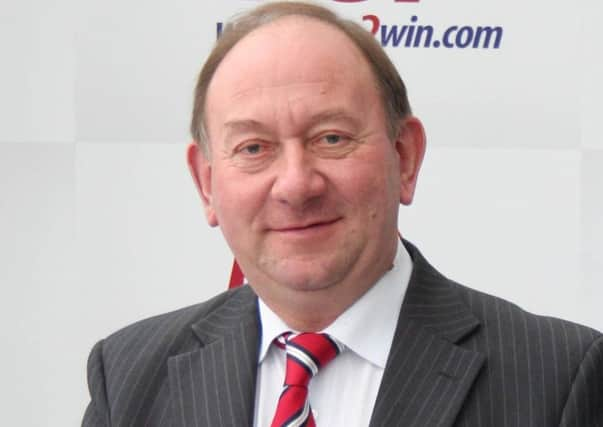Climate Change Bill ‘devastating’


Those against the progress of the bill at Stormont say that the proposed legislation flies in the face of expert scientific advice. Moreover, it has not been subject to any economic risk.
According to Robin Irvine, CEO of the Grain Trade Association, the implementation of the bill would be devastating to the local livestock sector. One of its outworkings would be a reduction in meat and milk production by over 50%.
Advertisement
Advertisement
He said:“The proposed bill ignores the guidance of the UK Climate Change Committee which has calculated that an 82% reduction in emissions in Northern Ireland will be sufficient for the UK to deliver its target of net zero by 2050.


“Instead many of our politicians are determined to commit Northern Ireland to a 100% reduction by 2045 without any reference to science or consideration of the social and economic impact.”
Irvine continued: “Local business are not opposed to robust programs to mitigate climate change and are actively engaged on a daily basis on promoting sustainable practices throughout the food chain. The agri-food industry has been leading the way as one of the first sectors to engage with government in joint initiatives which have had significant successes in mitigation of emissions to air and water.
“We are committed to play our part in the management of climate change and while we agree that the issue should be addressed by the assembly it is vital that the approach is informed by the best available science and with a full understanding of the social and economic impact of the proposed measures.”
Advertisement
Advertisement
The NIGTA representative went on to point out an alternative bill tabled by Minister Poots, and supported by DAERA, is based on the UK Climate Change Committee guidelines. This approach recognises the much greater importance of agriculture in Northern Ireland and that much of the food produced here is consumed in Great Britain.
Robin Irvine further explained: “This will involve an evidence based approach and has gone through a full consultation and impact assessment. This program is described as challenging and will drive contraction across the agri-food sector as the inefficient operators are forced out of business. However it is believed that the industry can survive such a program preserving the majority of the 100,000 jobs supported by the sector and maintaining substantial export sales to GB and beyond.
“By contrast the private member’s bill, proposed by Clare Bailey of the Green Party will be much more damaging: leading to massive job losses, rural depopulation and the loss of export earnings which will devastate the NI economy. The reality is that the measures will contribute nothing to the global environment or to the challenge of feeding a growing population.”
According to Robin Irvine, the inevitable outcome of this policy is that the UK requirement for meat and dairy will simply be imported from regions where emissions are higher and animal health and welfare standards are much lower than is the case in Northern Ireland.
Advertisement
Advertisement
He concluded: “While it is inevitable that the mitigation of climate change will impact significantly on the agri-food sector it is irresponsible for politicians to proceed with legislation which ignores the valuable work of our expert scientists and researchers and which has not undergone a proper assessment as to the effect on employment and the economy.”
Meanwhile, Newry & Armagh DUP Assemblyman and DAERA committee member William Irwin MLA has said the political parties supporting the Private Members Bill on Climate Change, “must be honest with farmers and the business community” on the impact the Bill will have on their business, compared to the changes proposed by the Agriculture Minister.
Mr Irwin made the comments as the Assembly prepares to further debate the issue in early May.
He stated: “I think it’s fair to say that we all want to do our bit in protecting the environment and I believe the vast majority of farmers see that protecting and improving what we have is vital for the future sustainability of their business. However, we must not forget what farmers deliver already for the environment and the need for more work to be done to quantify the positive impact which they play.”
Advertisement
Advertisement
He continued: “Without achieving a scientifically robust baseline for farmers’ carbon sequestration, how can the public value what they do or how, with confidence, can Government measure the impact of actions taken forward? I am supportive of taking action on climate change but it has to be achievable, driven by science and adequately funded to make a real difference on the ground.”
Mr Irwin added: “I think the Committee for Climate Change 6th carbon budget does this – it will be a challenge and it will be a stretch for business but it’s the advice of an independent scientific panel which has looked at our current position and what we can do to deliver net zero by 2050 within the UK context.
“Northern Ireland reaching a minimum of an 82% reduction to net zero by 2050 is a big ask but what the Greens and the other Parties want goes much, much further – their bill requires a further 18% reduction and done some five years earlier – this would be a step too far and a double whammy for an already struggling industry. Surely parties supportive of this Bill must be honest with farmers and businesses as to the harsh realities of such a proposal.”
Mr Irwin continued: “That is my view and all those parties who support the bill, the UUP, SDLP, Sinn Fein and Alliance must decide what role they want to play in climate change policy going forward. Supporting the Private Members Bill as a co-sponsor and the drive for net zero by 2045 will, as we now know, have a significant negative impact on farmers in particular.
Advertisement
Advertisement
“The debate in the Republic of Ireland is very clearly showing some of the genuine fears that farmers in particular have. My view is that by supporting this Private Members Bill, we step outside the advice of independent experts and support unachievable, unjust targets, with the consequence of making farmers redundant, reducing incomes, decreasing herd sizes, increased production costs and potentially land abandonment.”
He concluded: “We basically make redundant the vital role our farmers play in food production and those who hold many of the assets we need to help the environment. Therefore, the ironic result of this move would actually be detrimental to the environment and tackling climate change because we would actually increase global emissions by outsourcing our production to countries with less sustainable production methods. So let’s approach this debate with sensible, practical heads and deliver a pragmatic solution which works.”